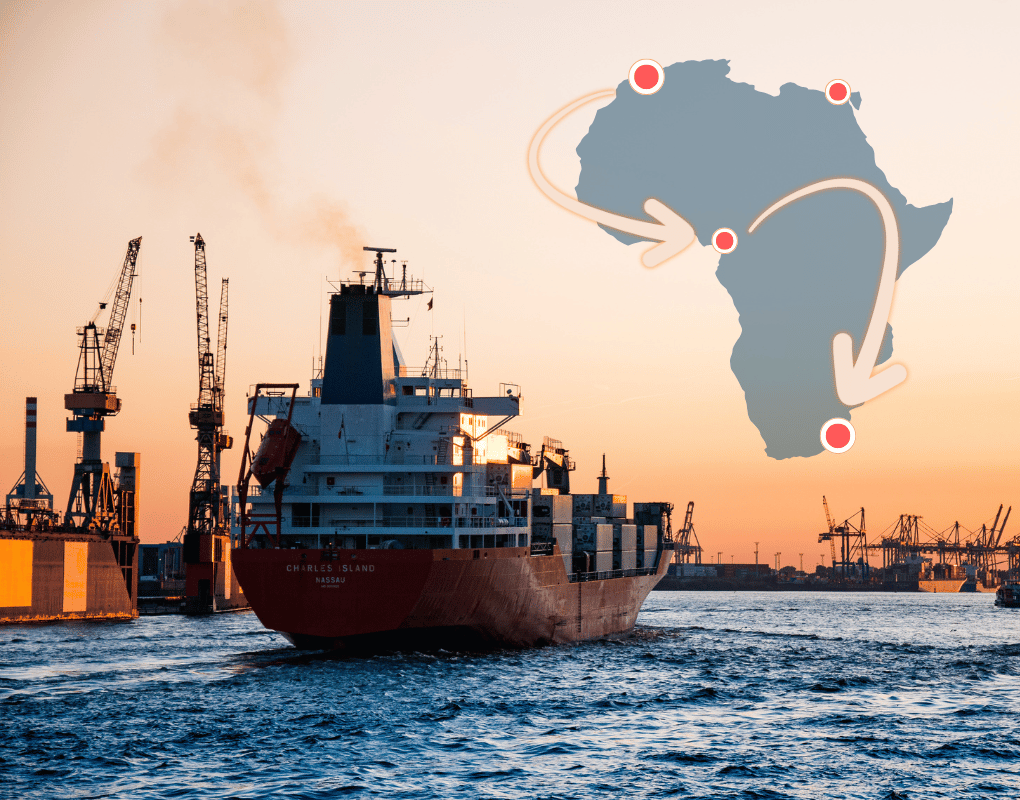How Tariffs And Port Tensions Affect Ship Supply In Africa

How Tariffs And Port Tensions Affect Ship Supply In Africa
Across the African continent, the momentum around trade, transport, and maritime infrastructure is building fast, and nowhere is this more evident than at major industry events like TOC Africa 2025.
Held in Morocco at the continent’s largest container port, this gathering of logistics leaders and port authorities sets the tone for the months ahead. But beneath the innovation and excitement lie some unavoidable realities: rising tariffs, logistical bottlenecks, and port tensions continue to test the resilience of Africa’s maritime supply chain.
For shipowners, operators, and procurement teams, the big question is, how do these challenges affect something as vital (yet often overlooked) as vessel provisioning? At Link Ship Chandlers, we believe that these changes aren’t roadblocks; they’re signals. And if you know how to read them, you can stay ahead of the curve.
Tariffs And Trade Barriers Are Reshaping The Seascape
Across many African countries, new import and export tariffs are shifting the cost balance for vessel operators and suppliers alike. While these measures are often aimed at protecting local industries or boosting revenue, the result is clear: higher costs for ship supplies, particularly for imported goods.
For ship chandlers in South Africa, this creates a complex pricing environment. Items like specialist equipment, technical spares, and even everyday provisions can be subject to delays or unexpected fees. Customs clearance can stretch from hours to days, adding friction to tight turnaround times.
That’s why ship supply in Africa increasingly requires a proactive, agile approach. The best chandlers are rethinking procurement strategies, such as relying more on local sourcing, negotiating bulk supply routes, and staying alert to changes in regional trade agreements.
ALSO SEE: How High Seas Piracy Influences South African Supply Chains
Port Disruptions Have A Major Knock-On Effect
Whether it’s a strike in Durban, congestion at Lagos, or new policy changes in Port Said, port operations across the continent are under pressure. These tensions at African ports might feel like isolated incidents, but for vessel operators, they have ripple effects across entire trade corridors.
A delay at one port can mean missed delivery windows for essential provisions at the next. Containers holding key spares can get held up in customs, and food or water supplies might not reach the vessel in time before departure.
For those managing vessel provisioning, this can be a logistical nightmare, especially when crews are rotating, temperatures are climbing, and vessels are moving fast between ports. One delay can affect multiple voyages.
READ NEXT: Ship Chandling Services South Africa (Rail On Track & Ports Powering Up)
Why Reliable Ship Chandling Matters More Than Ever
In an environment like this, reliable ship chandlers become essential allies. Vessel downtime is expensive, not just in fuel and port fees, but in lost productivity and reputational risk. Having a trusted partner who understands local challenges, maintains up-to-date stock, and can deliver at a moment’s notice is no longer a nice-to-have. It’s a business imperative.
A dependable chandler doesn’t just deliver what’s needed; they anticipate issues, work around obstacles, and offer solutions when others are stuck waiting for paperwork or port clearance. That’s the difference between a smooth port call and a costly delay.
How Link Ship Chandlers Stays Ready In Changing Times
At Link Ship Chandlers, we’ve been navigating South African port operations long enough to know one thing: change is constant. But with the right systems, suppliers, and staff, it doesn’t have to disrupt operations. Here’s how we keep our clients fully stocked, no matter the challenges:
- Local expertise: Our teams operate across key South African ports, including Cape Town, Durban, and Gqeberha, with deep local knowledge and trusted contacts on the ground.
- Speed & adaptability: When delays hit or plans shift, we move fast. We understand that tight windows require tight coordination, and we deliver on time, even under pressure.
- Strong supplier networks: Thanks to long-standing relationships with producers and distributors, we can source essentials quickly and cost-effectively.
- Compliance-focused: Our understanding of local regulations and port procedures means fewer surprises at the gate.
- Quality control: From technical spares to bonded stores, every product we supply meets the highest standards, because your crew, cargo, and vessel deserve nothing less.
LEARN MORE: Ship Chandlers = Secret Weapon In The Maritime Industry
Looking Ahead With Confidence
Despite the hurdles, Africa’s port infrastructure is moving in the right direction. Digital technologies, investment in logistics corridors, and regional trade agreements, such as the AfCFTA, are helping to build resilience across the maritime supply chain.
But until every port runs like clockwork, and every trade lane is tariff-free, there’s still a need for ship chandlers who understand the new normal and can work within it. That’s where Link Ship Chandlers thrives. We don’t just keep up; we stay ahead, so that your vessel can too.
Ship Supply Doesn’t Have to Stop
Tariffs and tensions are part of the current maritime landscape, but they don’t have to derail your operations. With a reliable chandler on your side, vessel provisioning stays consistent, even when everything else feels unpredictable. Get in touch with Link Ship Chandlers today to ensure your vessel never goes without essential supplies, no matter the challenges.












Leave a Reply